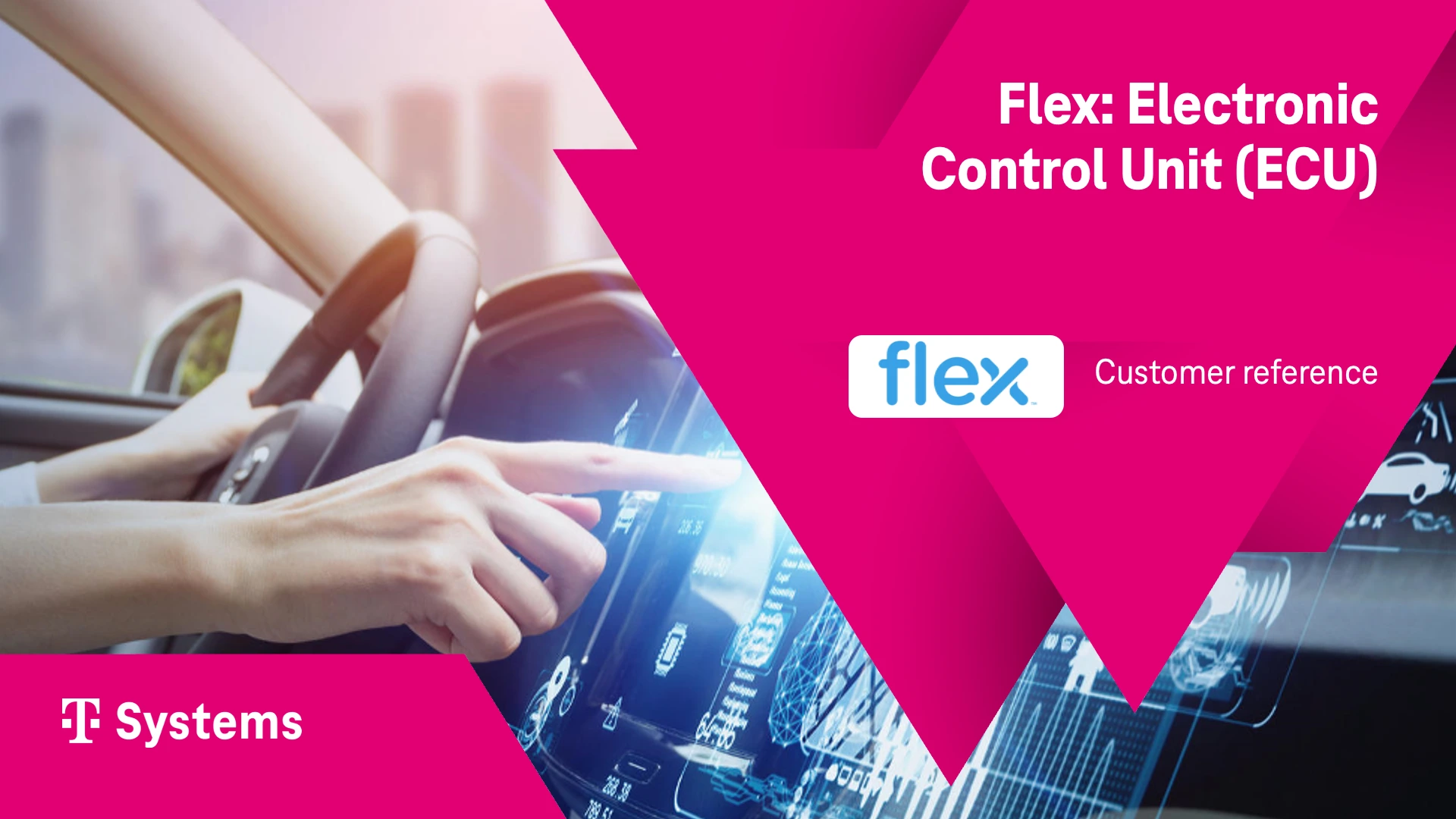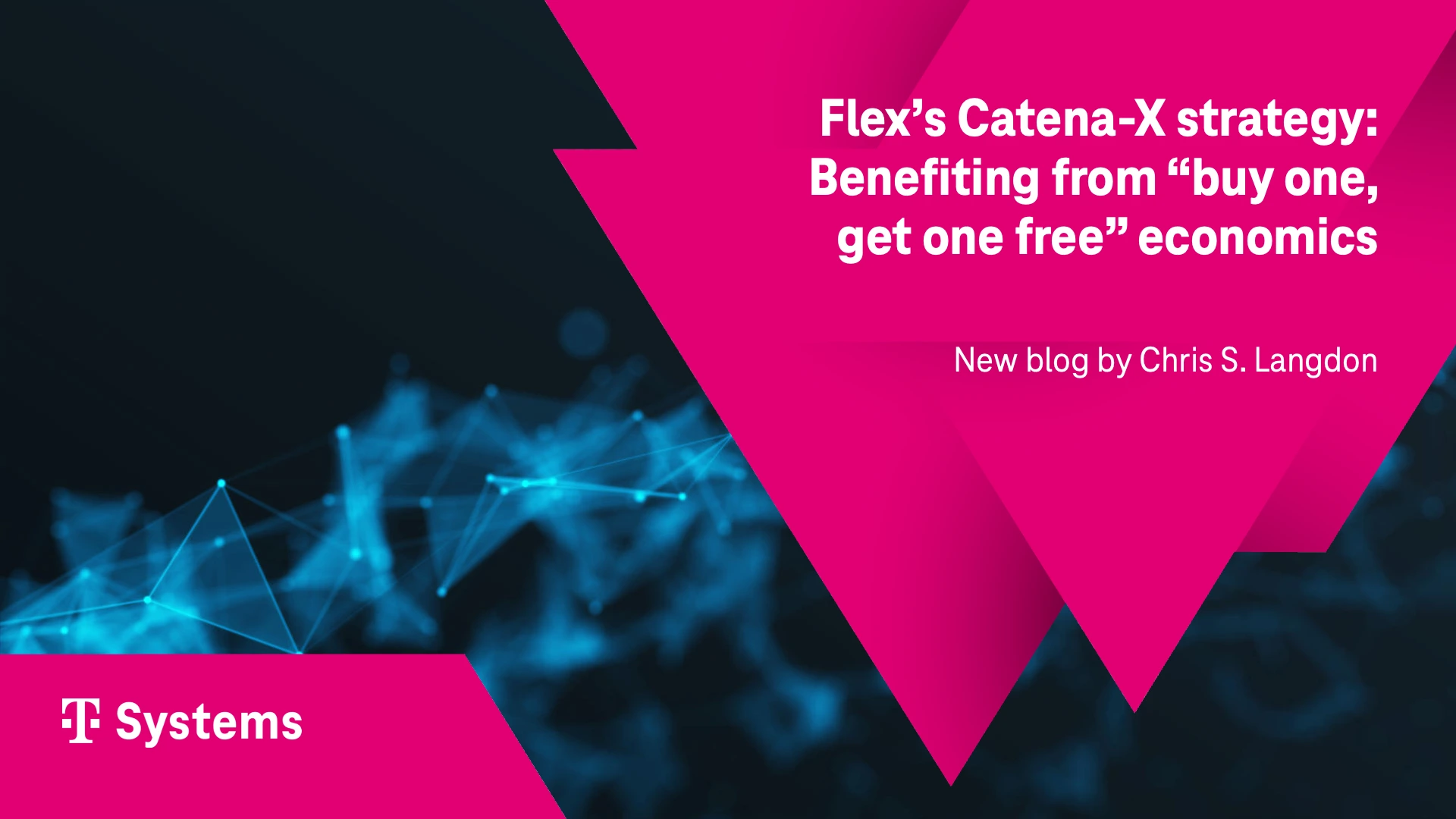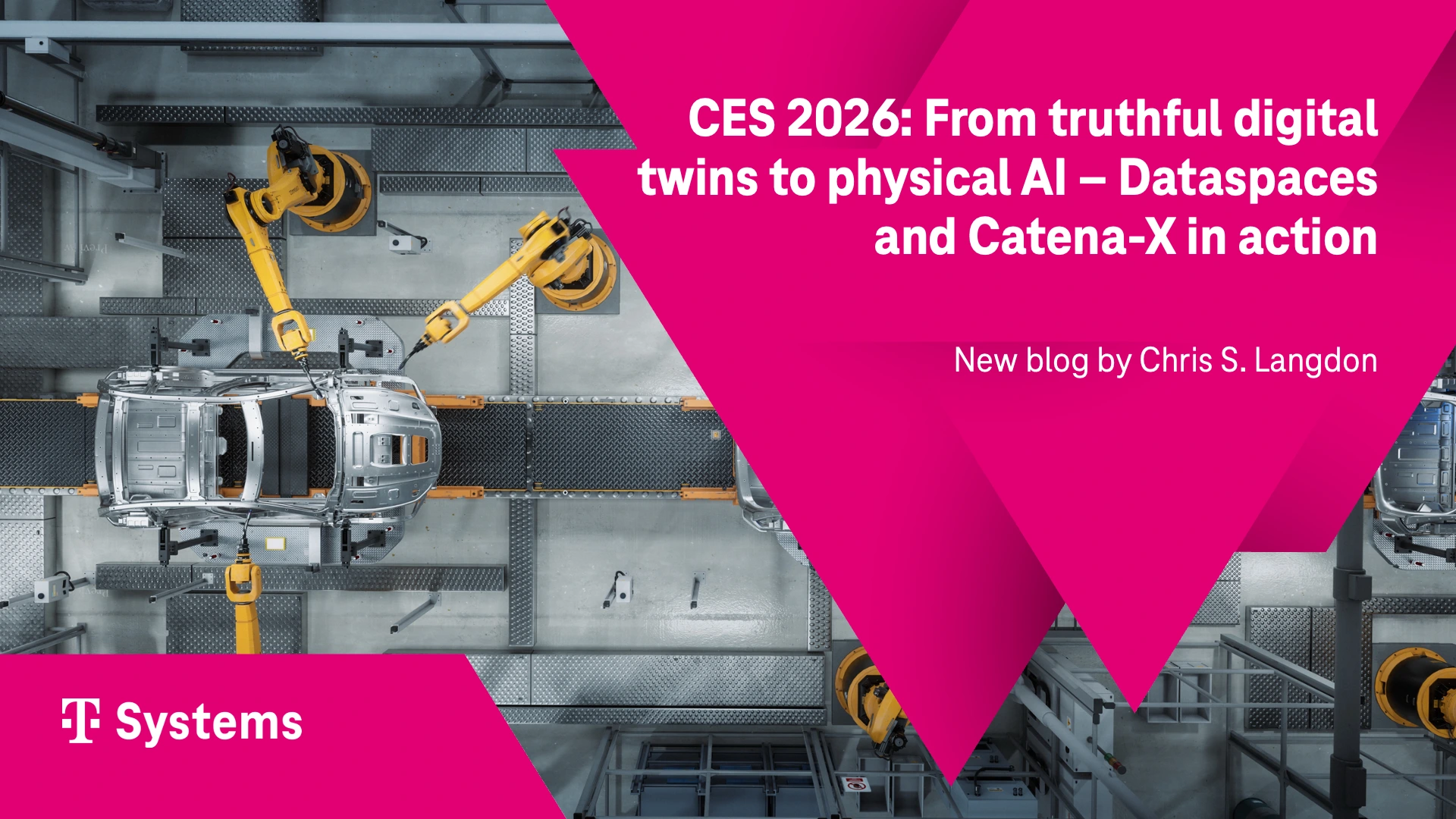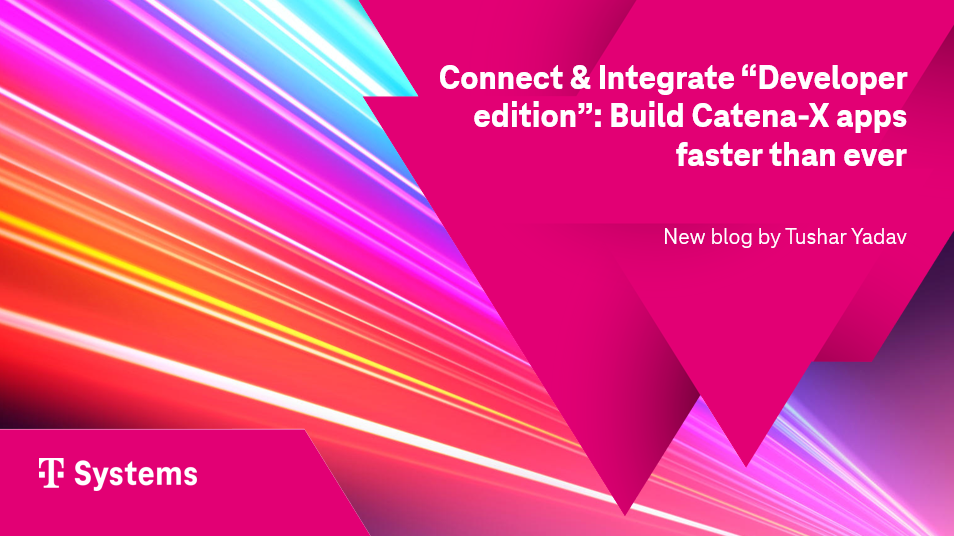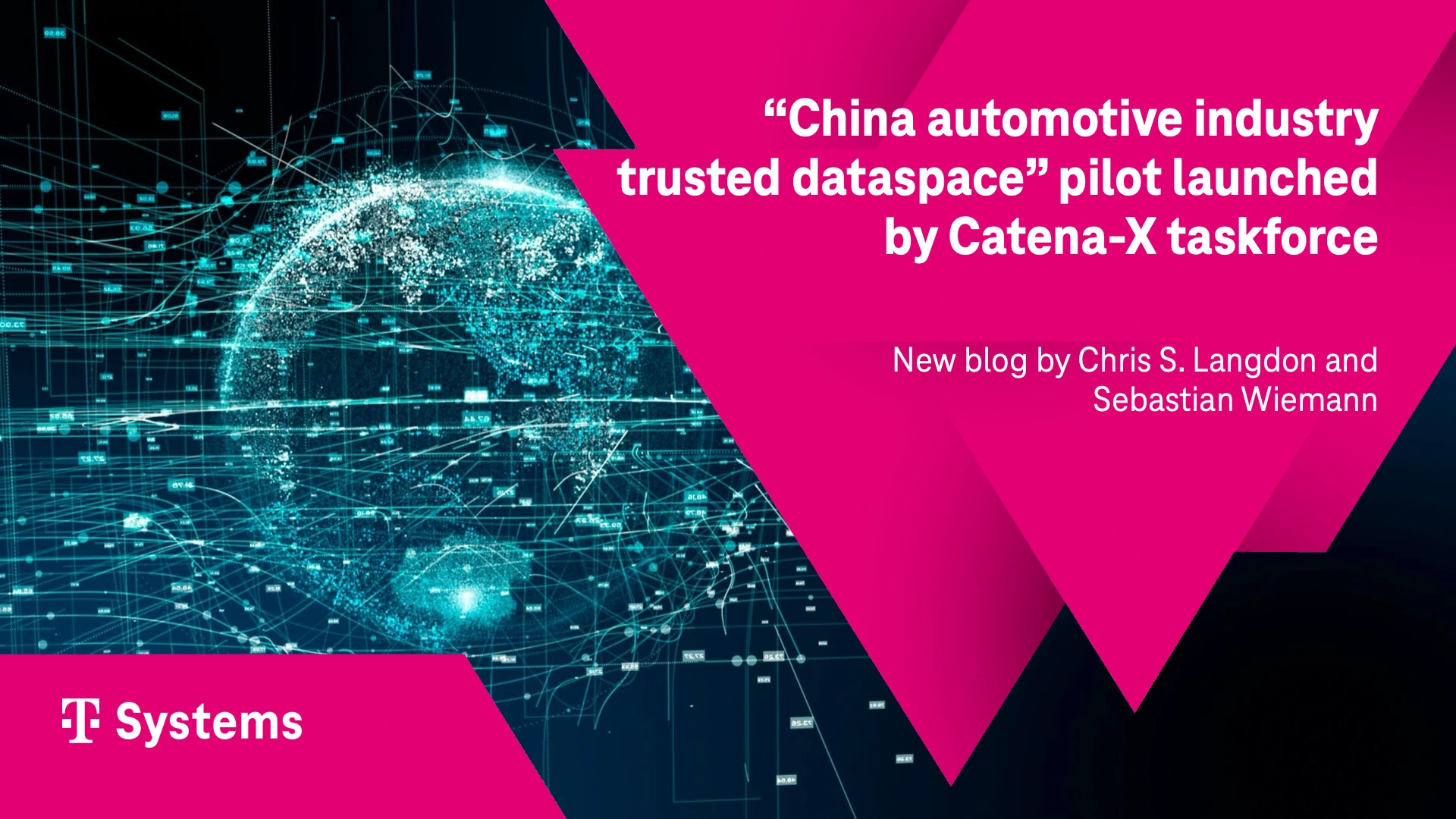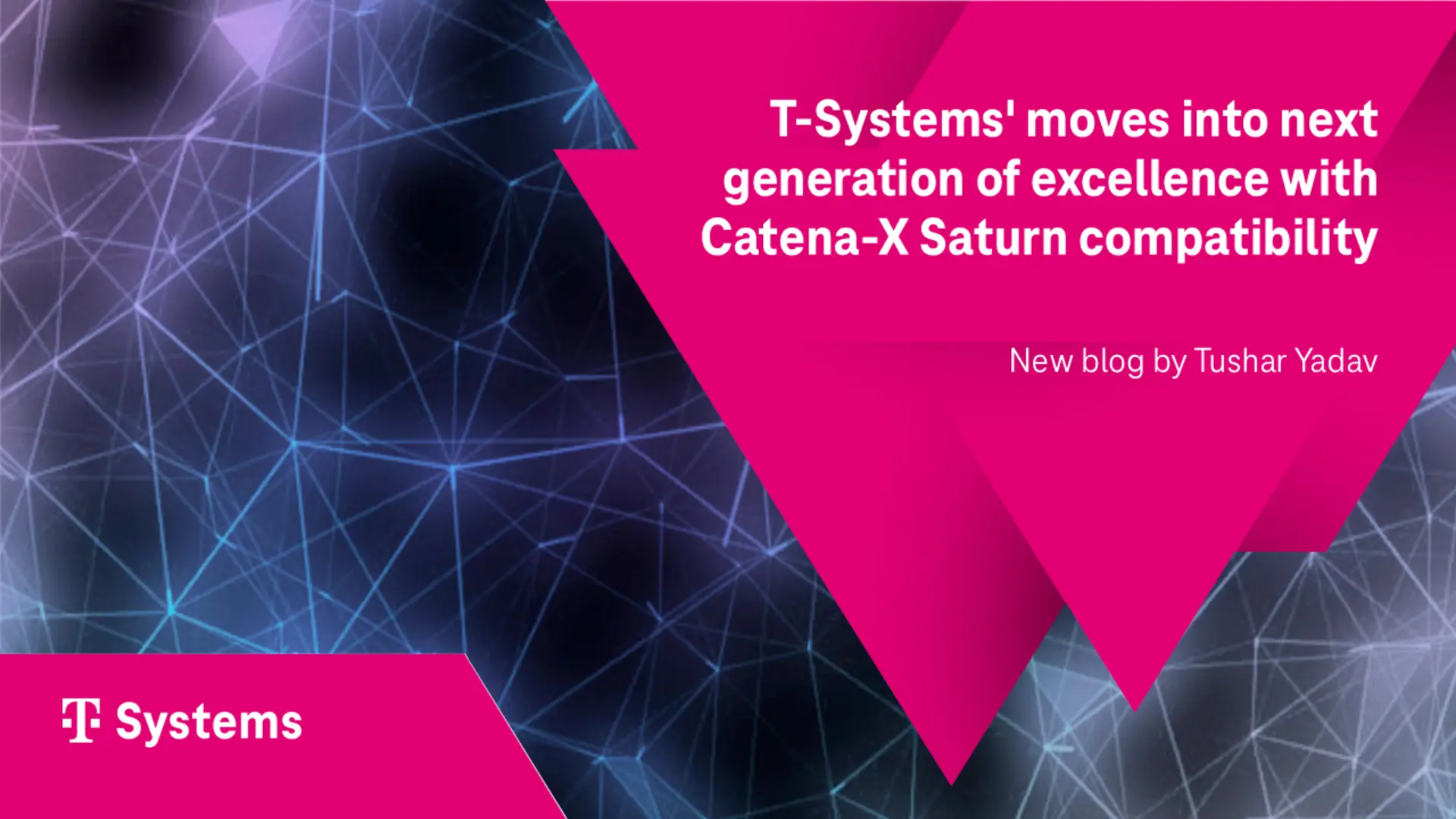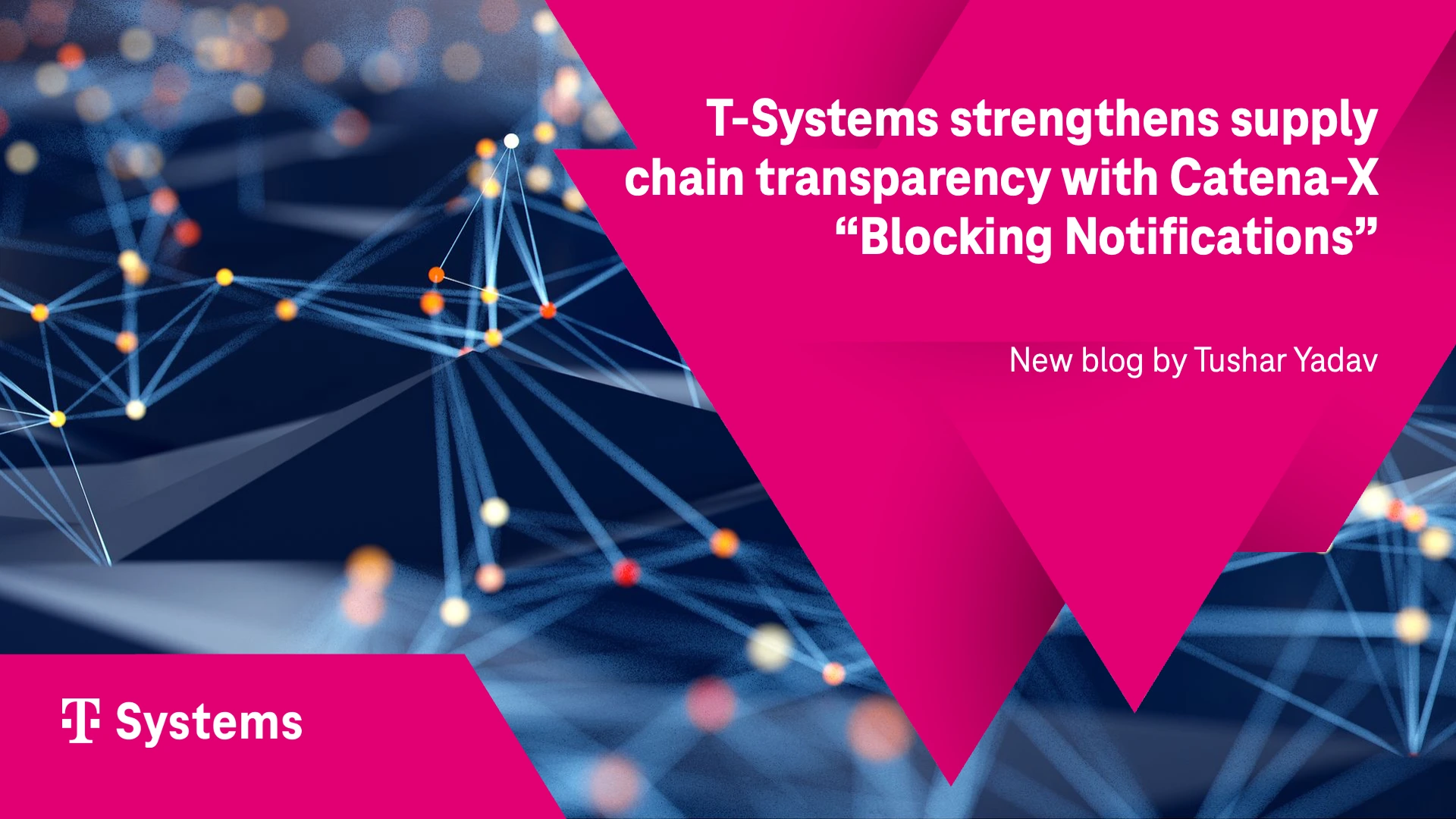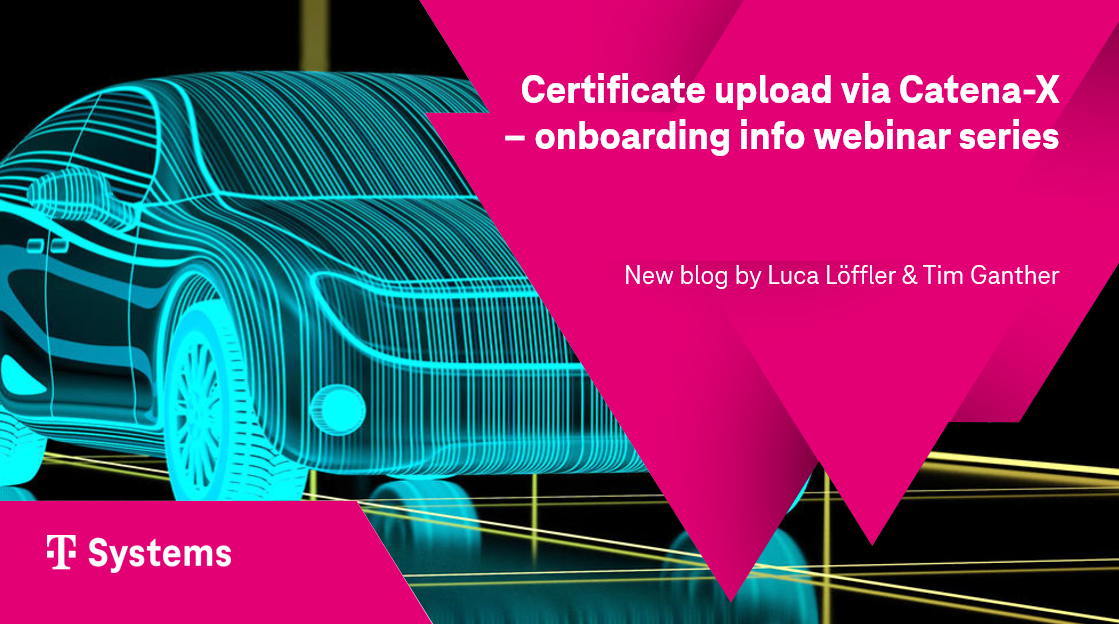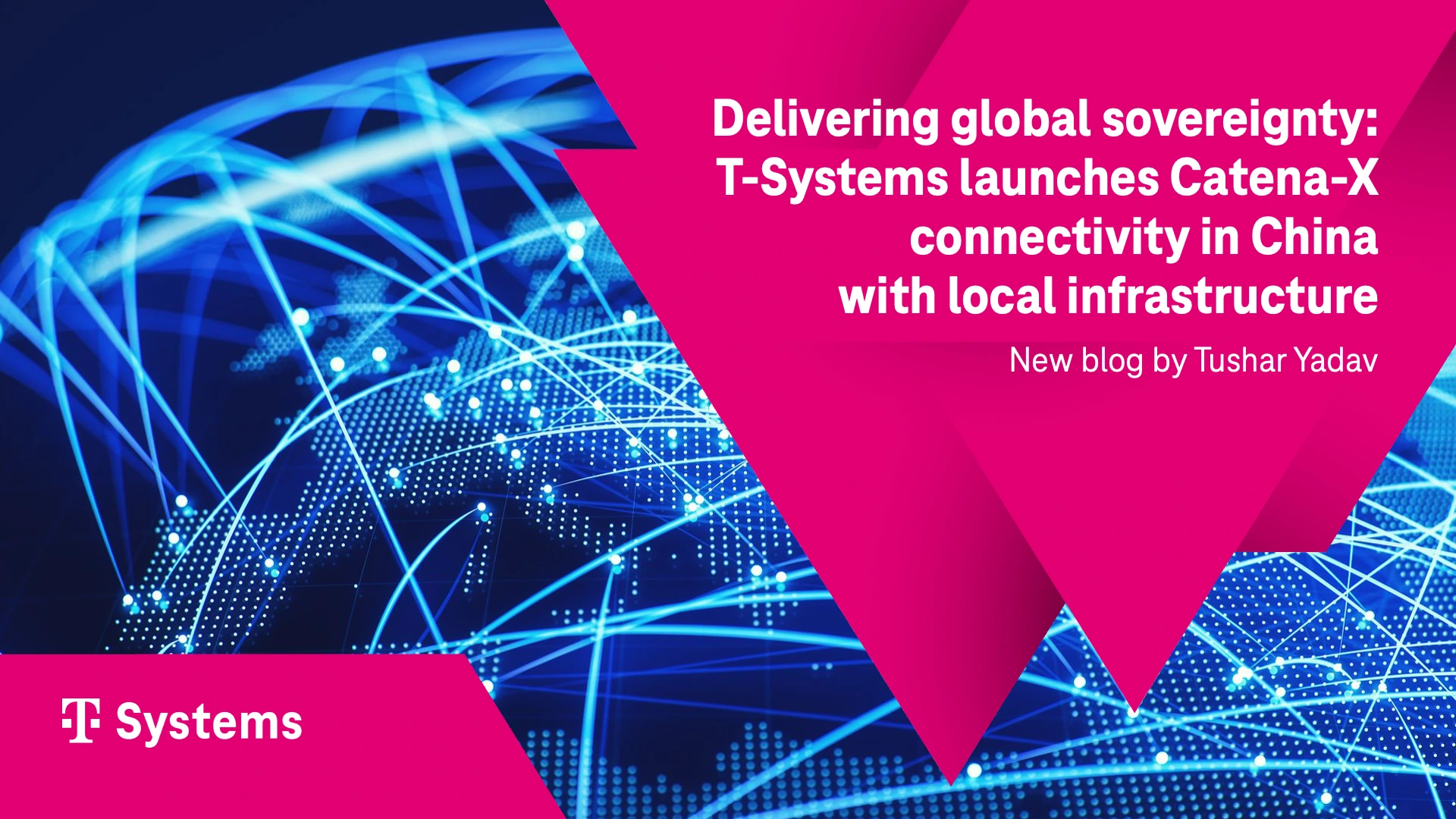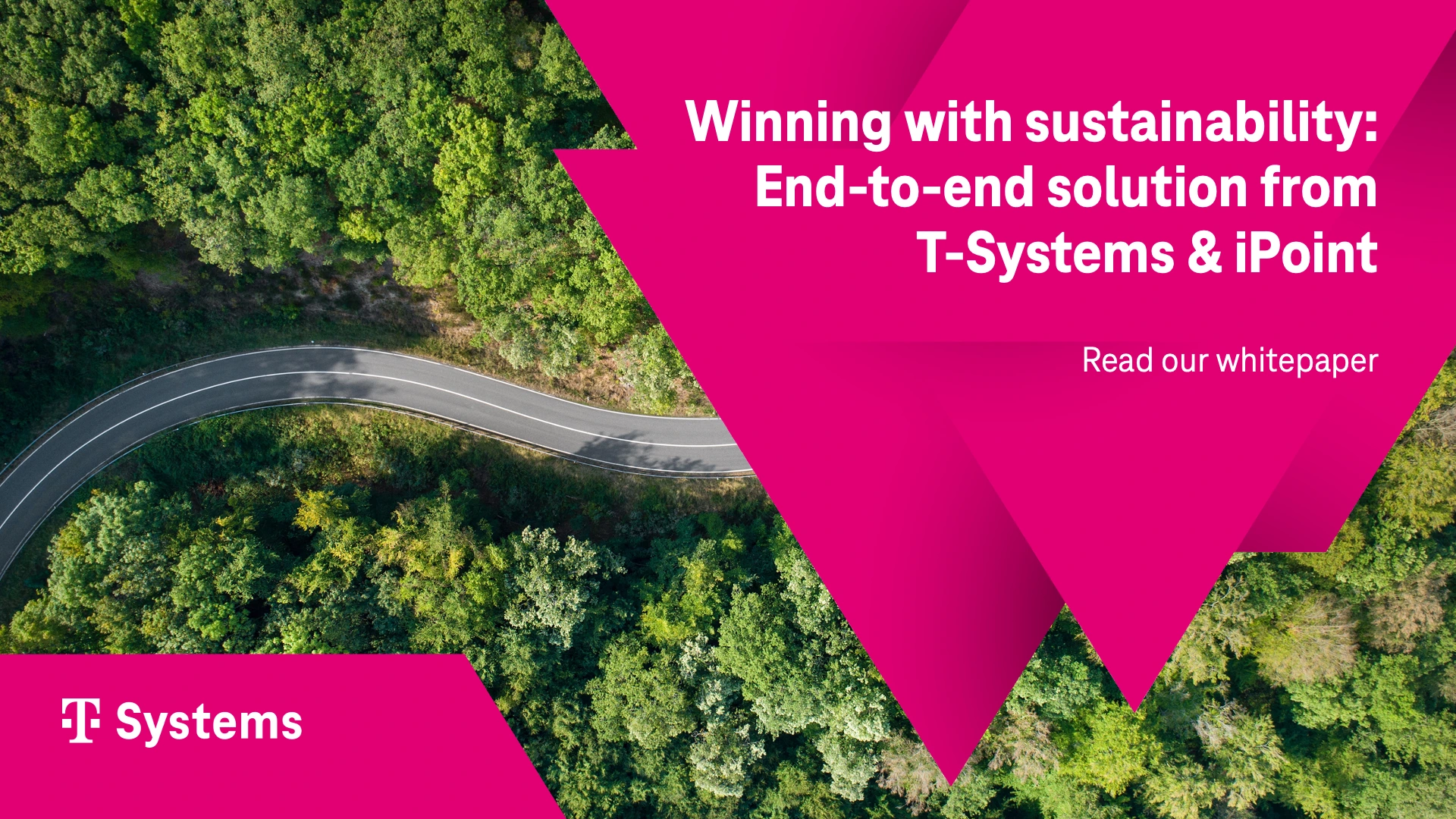LIVE FROM TODAY!
As the automotive industry shifts towards sustainability, understanding and reducing the Product Carbon Footprint (PCF) is a critical challenge. In a world increasingly focused on environmental impact, tracking and managing the carbon emissions throughout a product’s lifecycle has become essential.
T-Systems is a pioneer in dataspace solutions and a founding member of both Catena-X and Cofinity-X. As the leading developer of PCF data exchange concept and solutions in Catena-X, we build our products based on over eight years of expertise in sovereign data exchange.
Notably, T-Systems is currently the only provider supporting PCF data exchange in both synchronous and asynchronous mode, as well as through digital twin browsers. Contact us to learn more and request a demo.
What is Product Carbon Footprint (PCF)?
Product Carbon Footprint (PCF) refers to the total greenhouse gas (GHG) emissions produced throughout a product’s lifecycle—from raw material extraction and manufacturing to transportation, usage, and disposal. In the automotive industry, this includes emissions from vehicle production, parts manufacturing, and the supply chain.
Accurately tacking PCF is key to meeting sustainability goals, reducing environmental impact, and complying with stringent regulatory frameworks such as the EU Green Deal. Catena-X, a secure and collaborative data sharing platform for the automotive ecosystem, provides real-time, transparent data to help manufacturers make informed decisions that drive sustainability efforts.
The role of Catena-X in tracking and managing PCF
Catena-X connects multiple stakeholders across the automotive value chain —including OEMs, suppliers, logistics providers, and regulatory bodies—to facilitate real-time, secure data exchange. This data is essential for calculating the PCF of vehicles and their components, enabling companies to understand and mitigate their product’s environmental impact.
1. Data integration across the value chain
Catena-X allows automotive industry stakeholders to share detailed data on operations, including energy consumption, emissions, and material sourcing. By tracking this information across a product’s entire lifecycle, companies can accurately measure and analyze PCF.
For example, data from manufacturing facilities can be integrated with supplier emissions data, allowing OEMs to get a holistic view of the product's carbon footprint from production to end-of-life.
2. Collaboration for continuous improvement
A key strength of Catena-X is its collaborative nature. OEMs can work with suppliers to identify areas for improvement, optimize production processes, and introduce carbon-reducing technologies. By sharing PCF data, companies can collectively reduce their environmental impact and meet carbon neutrality targets.
3. Real-time carbon footprint monitoring
Real-time data exchange makes PCF tracking more dynamic. Instead of relying on annual reports or retrospective audits, companies can continuously monitor their product’s carbon footprint. This enables them to quickly respond to inefficiencies or identify opportunities for reduction, helping them stay agile in their sustainability efforts.
How T-Systems' Connect & Integrate powers PCF use cases in Catena-X
Seamless integration of data from various sources is essential for effective PCF tracking within the Catena-X ecosystem. This is where T-Systems Connect & Integrate comes in.
T-Systems Connect & Integrate provides certified, cloud-agnostic, easy-to-use, and scalable data exchange and integration services, enabling seamless participation in the Catena-X network.
1. Easy & quick automated setup within minutes
- Auto-deployment into Catena-X with no technical manual configurations and no IT know-how required
- Quick start into Catena-X applications with Catena-X and IDSA-certified solutions and Gaia-X compliance
- Full support for Catena-X Managed Identity Wallet (MIW) and distributed Digital Twin Registry (dDTR)
- Optional: highly performant, decentralized Digital Twin Registry, powered by Bosch
2. Cloud-agnostic solutions for scalability
To ensure low barrier to entry and scalability, we offer flexible deployment options across all hyperscaler clouds, as well as on-prem deployments. Current supported cloud environments include:
- Open Telekom Cloud (OTC)
- Amazon Web Services (AWS)
- Microsoft Azure
- Google Cloud
- T-systems Sovereign Cloud
- AWS Sovereign Cloud (coming soon)
Image 1. Scalable cloud-agnostic and flexible deployment
3. Easy user interface for no-code users
- Unified ONE Data Governance & Integration Hub for easy data access and usage
- Easy data upload options, including manual upload or automation for data provisioning and consumption
- Simple UI-based policy management tools – ideal for both business and technical users
- Dedicated PCF exchange and reporting tools for faster and efficient data exchange
Image 2. PCF data exchange in Connect & Integrate
Image 3. PCF data exchange history overview sample
Image 4. Asynchronous PCF data request
4. Seamless data integration across systems
T-Systems Connect & Integrate enables businesses to streamline the integration of various systems within the Catena-X ecosystem, from ERP systems to IoT sensors on production lines. This automation simplifies PCF data collection and analysis.
Further advantages include:
- Automated publishing or downloading of data packages via API to a secure database synchronized with Catena-X
- “Off-the-shelf” backend adapters for efficient and quick integration with existing systems
- Key semantic modelling functionalities, including data mapping, conversion, and synchronization via an intuitive web-based UI
Image 5. Semantic models and conversion for Catena-X in Connect & Integrate
Take the first step towards a sustainable future
The shift toward sustainability in the automotive industry goes beyond reducing vehicle emissions—it requires optimizing the entire value chain to minimize the Product Carbon Footprint (PCF). By leveraging the Catena-X ecosystem for secure, real-time data exchange, manufacturers can collaborate with suppliers and stakeholders to reduce their carbon impact effectively.
T-Systems Connect & Integrate is the key to unlocking the full potential of PCF tracking within Catena-X. Our solutions enable seamless data integration, scalable operations, secure information sharing, and valuable insights for continuous improvement.
Together, T-Systems and Catena-X empower the automotive industry to track and actively reduce PCF, driving the transition toward a more sustainable, transparent, and eco-friendly future.
Get started today! Contact us to learn more about PCF and sustainability use cases or any other use cases within Catena-X. We would be happy to showcase our capabilities and how we can support your data journey within the Catena-X network.





